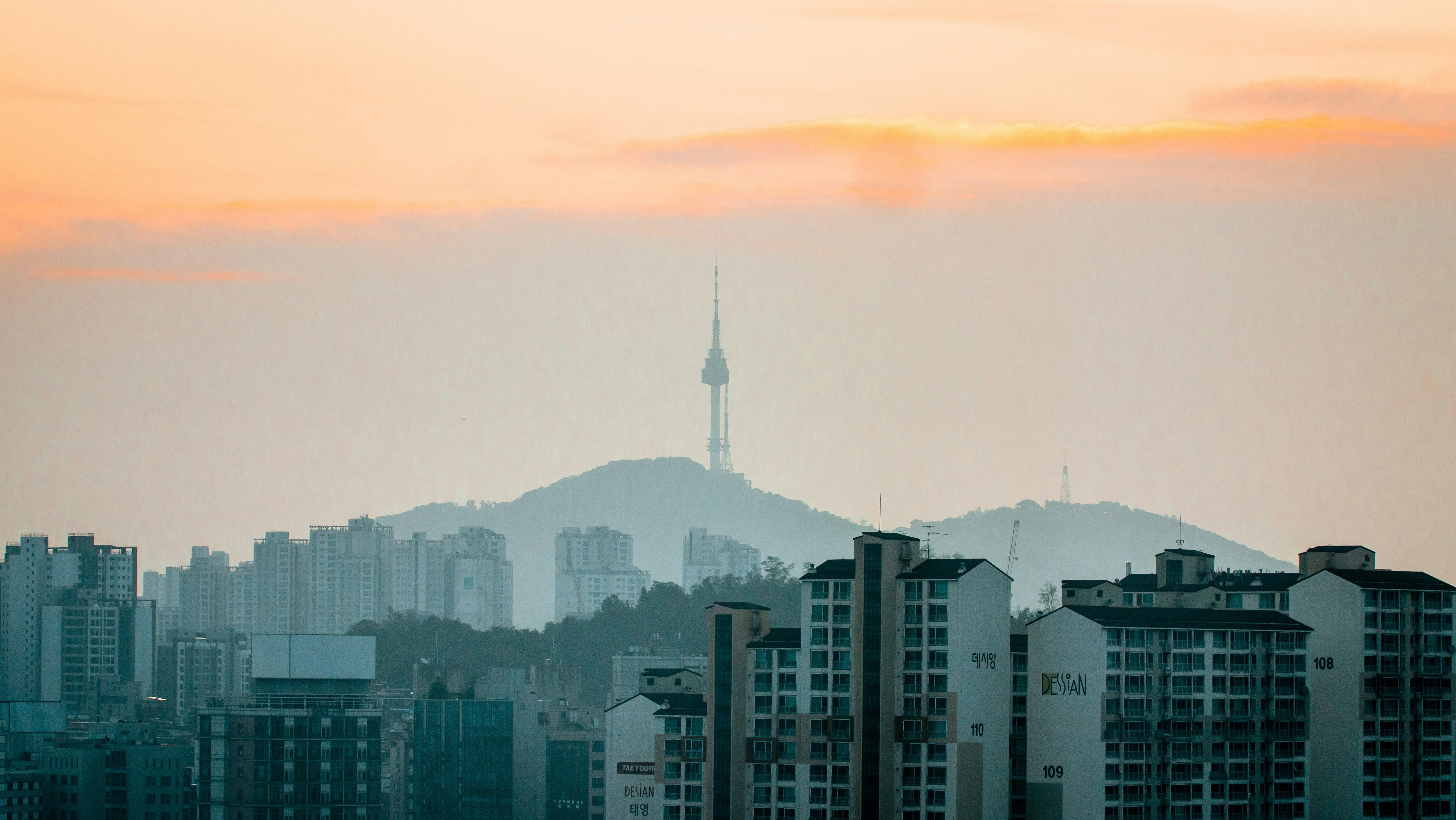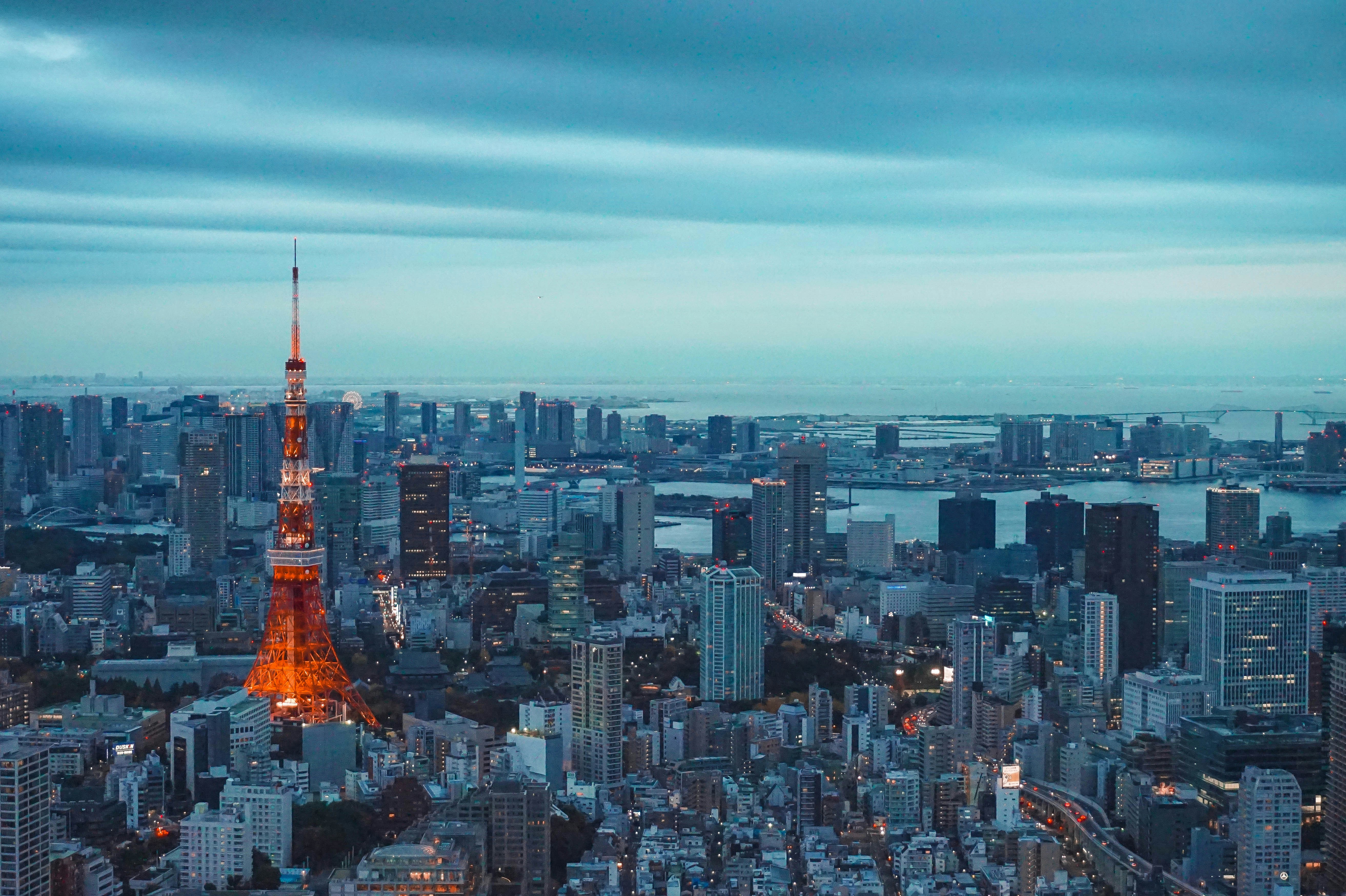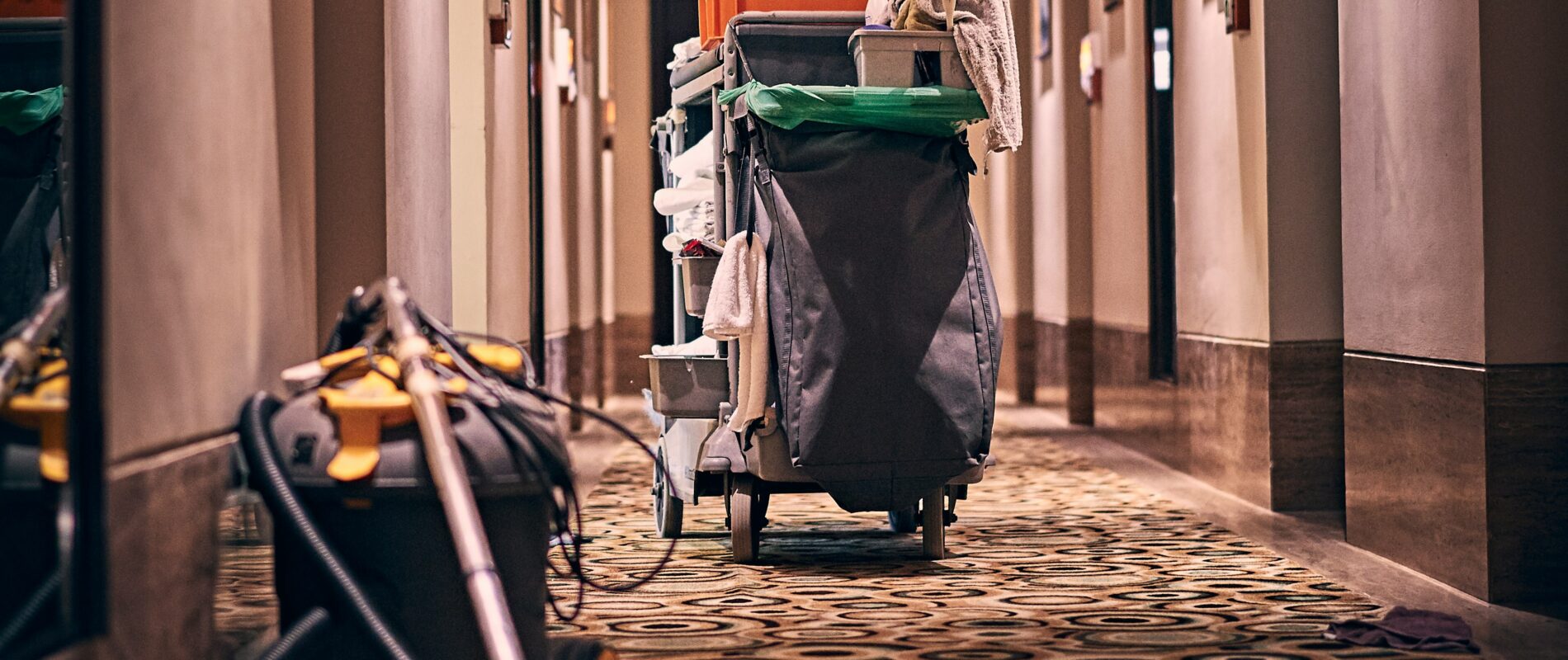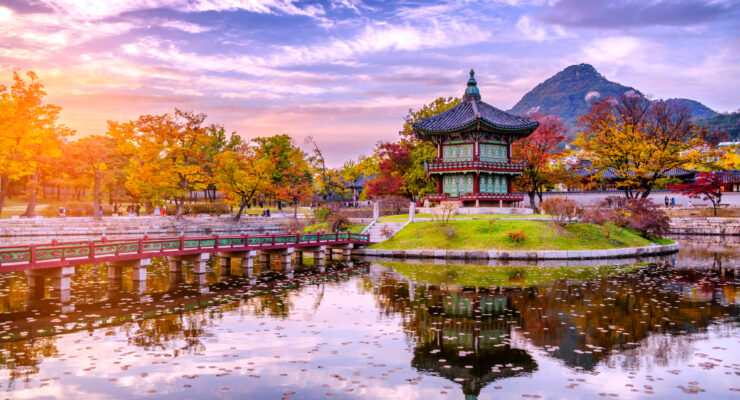Romana went on two working holidays in Asia: one in South Korea and another in Japan. During both experiences, she worked as a housekeeper in the hospitality sector.
Housekeeping is a very common job among working holiday makers in Asia. It’s a position that doesn’t require any specific qualifications or fluency in the local language. Cities like Seoul and Tokyo, among others, are full of hotels, hostels, and Airbnbs, offering plenty of opportunities in cleaning.
In this article, Romana shares her experience in detail!
Table of Contents
Part I: Housekeeping in South Korea on a WHV

How did you find your first job as a cleaner in South Korea?
I was only a few months away from the end of my working holiday and my budget was running low. I needed to find work. I immediately targeted an unskilled job because I knew that with just four months before the end of my visa, it would be very difficult to find work in my field.
I started looking through channels that other WHVers had recommended, especially Facebook groups and Craigslist.
There were many offers on Facebook for gigs in food service, voice dubbing, and acting… but very few for long-term positions. On Craigslist, I searched more diligently: there were new offers every day, but I had to be selective. There were lots of scams, karaoke hostess jobs, and positions only for native English speakers.
I would say it took me about two good weeks to find this job. I was very responsive and checked every two to three hours for new offers on Craigslist.
I had two interviews for waitress jobs, but I didn’t get a good vibe and preferred to take the housekeeping position because the schedule was better (mornings). I got the job at my third interview in a hostel in the Insadong neighbourhood via Craigslist.
Would you say it was easy to find?
I’d say it was relatively easy, but it really depends on the job market and the connection you make with recruiters. I heard from other WHVers at the time that they had a harder time finding a long-term, decent job.
It seems more difficult to find a job now than it was in 2022. The number of WHVers and international students has increased in recent years, so the competition in the job market is higher.
How did the hiring process go?
I applied by email and via KakaoTalk, sending my CV in English. I was a bit worried because my CV had no housekeeping experience and my visa was expiring in four months. I highlighted my Korean language skills and very flexible availability.
The manager contacted me quickly via KakaoTalk for an interview. The next day, I met with him and the property owners. They needed three people urgently for housekeeping and reception.
The interview
I first spoke with the manager in English. Here are the questions he asked me:
- Have you ever done cleaning before?
- What’s your weekly availability? Any scheduling conflicts?
- Do you have a residence card and a Korean bank account?
- When does your WHV end?
- He assessed my proficiency in English and Korean.
- We discussed salary expectations.
- He gave an overview of job duties.
I then had a brief conversation with the owners in basic Korean, confirming what I told the manager, who was also present to help translate as needed.
After this 30-minute interview, they told me I got the job and would message me about my start date and schedule.
That’s when they asked for a copy of my residence card and my Korean bank account booklet.
Despite my lack of experience, I think what worked in my favour was my full availability and having a Korean bank account. A few days after I started, they realized they may have hired too many people and so let go of a colleague hired the same day because she was less flexible and didn’t have a Korean bank account.
Training
I was trained by another WHVer who worked in a different hotel owned by the same people. Luckily, like me she was also from France, and had been with the company for over six months.
The training lasted two days and involved cleaning in pairs with her and having my rooms checked. For a week or two, the owner regularly inspected the rooms and gave me extra pointers, especially on how to make the beds since, unlike other hotels, duvets had to be done in the Korean style.
Can you describe a typical day?
I worked about 5 hours per day, 5 days a week. It was a small hostel, so I worked alone during the week and with another colleague on weekends.
Typical daily schedule:
10:50: Manager sends me the number of rooms to clean (3 to 10) and towels to deliver.
11:00-11:05: Arrive, change into work clothes.
11:05-11:30: Collect dirty sheets and towels from all rooms.
11:30-11:40: Start washing machines.
11:40-11:50: Gather clean linens for the day.
11:50-15:00/16:00: Full room cleaning:
- Bathroom bleach clean.
- Restock toiletries, toilet paper, tissues.
- Make beds, fold duvets Korean style, arrange towels.
- Wipe all surfaces.
- Vacuum entire room.
- Mop floors.
- Empty trash.
15:00-15:40: Depending on time left:
- Handle reservations on computer and manage reception.
- Welcome early arrivals.
- Clean common kitchen.
- Organize laundry area.
- Vacuum and mop common spaces.
- Restock cleaning products.
- Report broken items to owner.
15:40–15:45: Place fresh towels on room doors.
15:45–16:00: Sort trash according to Korean recycling rules.
What was your salary and did you have a contract?
No contract, paid on the 5th of each month. My pay was about €700 for 25 hours per week. Fixed monthly pay even if hours varied.
Was the job hard?
Yes, it’s hard work and not very well paid. You need to be meticulous because owners and guests can complain.
Sometimes, you find unpleasant things in rooms. It’s physically demanding: lifting heavy items, bending down a lot. It’s your daily workout!
The upside is that no experience is required. You just need to learn quickly and be detail oriented. I liked working at my own pace outside peak times without customer interaction.
Part II: Housekeeping in Japan on a WHV

Did your cleaning experience in Korea help you find a similar job in Tokyo?
Honestly I don’t think so. In Tokyo, many people work in housekeeping without prior experience. It’s not a requirement.
However, I think it helped me to work faster.
How did you find the job in Tokyo? Was it easy?
I focused on Craigslist Tokyo since I had found my job in Korea through that site. I found my permanent job in just under two weeks. I had done a trial in another hotel, but it didn’t go well.
The difficulty of finding a job depends on what you’re looking for and your pickiness. For casual jobs like cleaning, food service, and language teaching, I heard it was fairly easy. I actually found it easier than in Korea.
Can you tell us more about the trial period that didn’t go well?
So after a week of searching on Craigslist, I landed a job in a capsule hotel in Shinjuku.
The first contact was very good. The on-site interview with the owner went well too. She asked me to start the next day, with a two-hour training given by the hotel manager.
The next day’s training immediately worried me: the manager quickly showed me around the very large hotel (about ten floors with around thirty beds per floor). The spaces were dirty, and the cleaning equipment was outdated, almost nonexistent.
Instead of practical training, he only had me read a sheet listing the tasks I would be assigned the next day.
Since the manager was also French and the communication with him was good, I decided to give it a shot, despite feeling unsure.
My first day of work turned out to be a disaster!
I alone was responsible for all hotel cleaning: about thirty beds to make, plus shared showers and toilets on each floor. Beyond the very dirty common areas, it was mainly the lack of organization (no extra staff) and poor-quality cleaning materials that convinced me not to continue.
At the end of my shift, I hadn’t finished my tasks and there was no one to take over. I was completely on my own, and it was my first day.
I wrote to the owner that same evening to let her know I wouldn’t continue working there. I was paid for that day only three months later, after many reminders.
The takeaway from this bad experience is to trust your instincts and to not accept a company that doesn’t provide proper training or decent working conditions. There are plenty of part-time job offers in Japan to find something that truly suits you.
How did your hiring go for your second job?
After my first experience, I quickly found and applied for a cleaning and building caretaker position for Airbnb services (also via Craigslist). I was offered a video interview with the company founder.
The interview went very well. The boss was very kind and explained how the company worked. I was barely asked any questions. He took my availability and invited me to do a trial the next day with their trainer.
Unlike my previous experience, this time I got proper training. After the trial, the trainer gave feedback to the boss about my performance.
Within a week, I got confirmation that I was hired. I received a shared schedule mixing housekeeping days and building caretaker shifts. That’s when they asked for my residence card and payment preferences (Japanese bank account, Revolut, or cash).
The biggest downside was the schedule, which wasn’t fixed. I only got my schedule one week in advance and it changed every week. It made organizing my life difficult.
What did your work involve? Can you describe a typical day?
I had two types of days:
Housekeeping days (10:00 am to 3:00 or 4:00 pm)
Caretaker days (4:00 am to 10:00 pm)
I worked 5 to 6 days a week for a total of 30 to 35 hours. Unlike the Korea WHV, Japan’s didn’t have restrictions on the number of hours WHV holders can work per week, so I could work up to even 40 hours some weeks.
Typical housekeeping day:
9:30: Receive messages with the apartments I need to clean in one or two buildings (2 to 4 apartments).
10:00-10:20: Pick up cleaning supplies and fresh linens from the laundry rooms.
10:20-3:00: Full cleaning of apartments, including:
- Cleaning of bathrooms and kitchens
- Restocking shower products, toilet paper, and tissues
- Making beds and placing clean towels
- Cleaning all apartment surfaces
- Vacuuming all rooms
- Mopping floors
- Emptying trash
3:00-3:10: Take photos of the apartments and send them to the company’s Line group as proof and for complaint verification.
Depending on how many apartments I had to clean, my workload fluctuated.
Typical caretaker day (4:00-10:00 pm):
This was much less tiring than cleaning. Some Tokyo Airbnbs require continuous caretaker presence, so the job was to be there and ensure the building functioned properly.
Tasks included:
- Being present during inspections by Japanese security services (very frequent in Japan) such as seismic safety checks and fire safety inspections.
- Responding to clients’ needs.
- Making sure there were no disturbances in the building (thefts, noise complaints, etc.).
- Sending and receiving packages.
What was your salary and did you have a contract?
I didn’t have a contract and was paid on the 10th of each month for work done the previous month. My salary ranged from €800 to €1100 for about 25 to 35 hours per week.
I was paid based on the number of apartments cleaned and the complexity of the work. One advantage was that if I finished early, I still got full pay and overtime was compensated.
For caretaker days, I earned 1,200 yen per hour.
I received invoices listing all services I provided, which allowed me to verify my payments. I was also reimbursed for transportation costs.
Was the job difficult?
Like housekeeping in Korea, the job was tiring and demanding. You have to be meticulous, especially in large spaces like Airbnbs with many rooms and furniture.
Accommodation in Japan has a reputation for being extremely clean, so this is not a job to take lightly. Employers regularly check through photos or inspections by colleagues. We don’t have direct contact with clients, which reduces stress, but bad customer reviews can lead to warnings or even dismissal.
For me, the experience was very positive! I quickly got more responsibilities and helped train new hires. It was a rewarding experience that I remember fondly.
Part III: Review and comparison of experiences
Did you notice any differences working in Korea and Japan?
I generally find the two countries quite similar in their approaches. Employers expect a lot from their employees.
I also found that beyond the image that both countries have for being organized and strict, the working environment in the cleaning sector was actually quite disorganized: no contracts, very little advance planning, payment delays, understaffing, etc. This was especially obvious to me in Japan.
I found it much harder to build connections at work with other WHVers in Japan than in Korea. In Korea, coworkers were usually curious and wanted to keep in touch outside work. In Japan, people only talked about work-related topics.
What were the language requirements for these jobs?
Requirements vary from one hotel to another, but I think being able to get by in English is a must. All my employers in Korea and Japan spoke English. Especially since almost all communication happened in writing through KakaoTalk or Line messaging apps (very few people were on-site).
There was no need to speak Korean or Japanese: translation tools like Papago were enough for specific cases, especially in Korea, since I found that Japanese people have a good level in English.
Do you have an anecdote to share?
In Japan, some guests who were supposed to check out at 10 am weren’t ready to leave and wanted to stay longer.
However, that wasn’t possible because other guests were booked after them and I had to clean the apartment.
Very upset by my refusal (which was backed by my supervisors through messages), the guests left extremely negative reviews about me on the establishment’s page, making up false things.
I was very worried and shaken by these false accusations. Since clients are highly respected in Japanese society, I feared my bosses’ reaction. But to my great surprise, without doubting my professionalism, they defended me and spoke up on my behalf.
Do you have advice for future WHVers looking for a job in this sector?
Although housekeeping isn’t an easy sector, it’s important to find a workplace that respects its employees and is sufficiently organized. Such places exist in Korea and Japan, so don’t hesitate to try several jobs before finding the right one.
Also, even though the work seems less stressful than a job with direct customer contact (like in food service), it’s very important to be meticulous in your tasks, as cleaning standards are quite high in these countries. Poorly done work can expose you to harsh criticism.
Finally, don’t worry about mastering the local language; English is more than enough. Emphasize your full availability and adaptability, as this sector mainly hires motivated people who are ready to work on short notice.












 Français
Français English
English



0 comments
{{like.username}}
Loading...
Load more